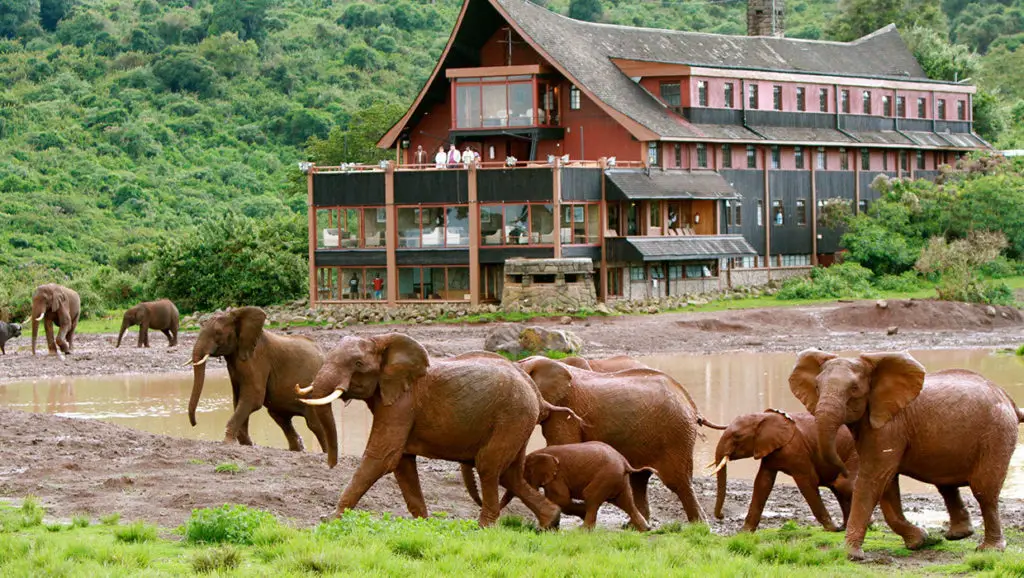Nakuru Town, the fourth-largest urban center in Kenya, is a bustling economic hub with diverse economic activities. The main economic sectors in Nakuru include agriculture, manufacturing, tourism, commerce, and tertiary services.
The town’s strategic location in the Rift Valley, coupled with its rich natural resources and growing population, has contributed to its economic significance in the region.
This article explores the various economic activities in Nakuru Town, their impact, and future prospects.
What is the primary economic activity in Nakuru?
Agriculture remains the backbone of Nakuru’s economy. The sector includes:
- Crop farming
- Livestock rearing
- Horticulture
- Dairy farming
The county generated over Kshs 23 billion from the horticulture sector last year, highlighting its significance in the local economy.
What are the main crops grown in Nakuru?
Nakuru’s agricultural sector produces a variety of crops:
- Maize
- Beans
- Wheat
- Irish potatoes
- Vegetables (e.g., tomatoes, cabbages)
- Flowers (for export)
These crops contribute significantly to food security and income generation in the region.
How significant is the manufacturing sector in Nakuru?
Manufacturing is a growing sector in Nakuru, contributing to employment and economic diversification. Key industries include:
- Food processing
- Textile manufacturing
- Leather processing
- Furniture making
- Construction materials production
The sector benefits from Nakuru’s strategic location and access to raw materials from the agricultural sector.
What role does tourism play in Nakuru’s economy?
Tourism is a vital economic activity in Nakuru, driven by attractions such as:
- Lake Nakuru National Park
- Menengai Crater
- Hyrax Hill Prehistoric Site
- Lord Egerton Castle
The sector contributes to employment, foreign exchange earnings, and the growth of related industries like hospitality and transportation.
How does commerce contribute to Nakuru’s economy?
Commerce is a major economic sector in Nakuru, characterized by:
- Retail and wholesale trade
- Financial services
- Real estate
- Transportation and logistics
The town’s strategic location along major transport routes has facilitated its growth as a commercial center.
What tertiary services are prominent in Nakuru?
Nakuru has a growing tertiary sector, including:
- Education services
- Healthcare
- IT and telecommunications
- Professional services (legal, accounting, consulting)
- Government services
These services cater to the local population and surrounding areas, contributing to employment and economic growth.
How does Nakuru’s informal sector contribute to its economy?
The informal sector plays a significant role in Nakuru’s economy, characterized by:
- Small-scale traders
- Street vendors
- Informal service providers
- Artisans and craftspeople
This sector provides employment and income opportunities for a significant portion of the population, particularly youth and women.
What is the state of entrepreneurship in Nakuru?
Entrepreneurship is thriving in Nakuru, with numerous small and medium enterprises (SMEs) in various sectors:
- Retail and wholesale trade
- Food and beverage production
- Transport services
- Technology startups
- Agribusiness
The local government and various organizations provide support and training to encourage entrepreneurship and SME growth.
How does Nakuru’s economy compare to other major towns in Kenya?
Here’s a comparison of Nakuru’s economy with other major Kenyan towns:
| Aspect | Nakuru | Nairobi | Mombasa | Kisumu |
|---|---|---|---|---|
| Main economic sectors | Agriculture, Manufacturing, Tourism | Finance, Technology, Services | Port services, Tourism, Manufacturing | Trade, Fishing, Agriculture |
| Population (approx.) | 400,000 | 4.4 million | 1.2 million | 610,000 |
| GDP contribution | 4.9% of national GDP | 21.7% of national GDP | 11% of national GDP | 2.9% of national GDP |
| Key industries | Horticulture, Food processing | Financial services, Technology | Shipping, Tourism | Fish processing, Sugar production |
What is the state of employment in Nakuru?
Employment in Nakuru is characterized by:
- A mix of formal and informal sector jobs
- Growing opportunities in manufacturing and services
- Seasonal employment in agriculture and tourism
- Challenges of youth unemployment
The town’s diverse economic activities provide various employment opportunities, but job creation remains a priority for local authorities.
How does Nakuru’s location influence its economic activities?
Nakuru’s strategic location contributes to its economic activities in several ways:
- Proximity to major transport routes facilitates trade
- Access to agricultural hinterlands supports agro-processing industries
- Natural attractions in the surrounding area boost tourism
- Central location attracts businesses serving the wider Rift Valley region
This advantageous position has helped Nakuru develop as a regional economic hub.
What challenges does Nakuru’s economy face?
Despite its growth, Nakuru’s economy faces several challenges:
- Infrastructure limitations
- Environmental concerns, particularly around Lake Nakuru
- Competition from other urban centers
- Skills gap in certain sectors
- Balancing urban development with agricultural preservation
Addressing these challenges is crucial for sustainable economic growth in the town.
How is technology impacting Nakuru’s economy?
Technology is increasingly influencing Nakuru’s economic landscape:
- Growth of digital financial services
- Adoption of e-commerce platforms
- Use of mobile technologies in agriculture
- Emergence of tech startups and innovation hubs
- Digitization of government services
These technological advancements are creating new opportunities and improving efficiency across various sectors.
What role do cooperatives play in Nakuru’s economy?
Cooperatives are an important part of Nakuru’s economic fabric, particularly in:
- Agricultural marketing and processing
- Savings and credit services
- Housing development
- Transport services
These cooperatives help pool resources, provide access to markets, and support economic empowerment for their members.
How does Nakuru’s real estate sector contribute to its economy?
The real estate sector in Nakuru is growing, driven by:
- Increasing urbanization
- Demand for commercial spaces
- Growth of the middle class
- Investment in rental properties
- Development of new residential areas
This sector contributes to employment, wealth creation, and urban development in the town.
What is the state of Nakuru’s transport and logistics sector?
Nakuru’s transport and logistics sector is vital to its economy, characterized by:
- Road transport services
- Warehousing and storage facilities
- Distribution centers for agricultural produce
- Courier and delivery services
- Potential for rail transport development
The sector facilitates trade and connects Nakuru to other parts of Kenya and the wider East African region.
How is Nakuru addressing environmental sustainability in its economic activities?
Nakuru is increasingly focusing on environmental sustainability in its economic development:
- Promotion of sustainable agricultural practices
- Investment in renewable energy projects
- Implementation of waste management and recycling initiatives
- Eco-tourism development
- Green building and urban planning initiatives
These efforts aim to balance economic growth with environmental conservation.
What future economic prospects does Nakuru have?
Nakuru’s economic future looks promising, with potential for growth in:
- Agro-processing and value addition
- Manufacturing and industrial development
- Technology and innovation sectors
- Sustainable tourism
- Green energy production
The town’s strategic location, natural resources, and growing population position it for continued economic expansion.
Conclusion
Nakuru Town’s economy is diverse and dynamic, with agriculture, manufacturing, tourism, and commerce playing significant roles. The town’s strategic location and natural resources have contributed to its economic growth and diversification.
While facing challenges such as infrastructure limitations and environmental concerns, Nakuru is actively working towards sustainable economic development.
The focus on technology adoption, entrepreneurship, and environmental sustainability positions Nakuru for continued economic growth and increased significance in Kenya’s overall economy.
As the town addresses its challenges and leverages its strengths, it has the potential to become an even more important economic hub in the region.



